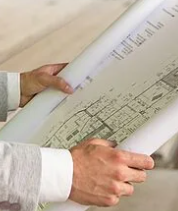Recent News
Be sure that work is safe!
Published Friday, 10 October 2025Winners of the competition “Most Energy-Efficient Building in Latvia 2025” – from Riga and Mārupe
Published Thursday, 18 September 2025Government Supports Unified Building Registration Process
Published Tuesday, 16 September 2025State Construction Control Bureau urges 956 educational institutions to carry out mandatory periodic technical inspections of buildings without delay
Published Friday, 05 September 2025
Public procurement procedures may not apply to construction works expertises in procurements up to EUR 140,000
Published Tuesday, 20 June 2023The information was translated using the ChatGPT service
The Cabinet of Ministers, in its session on June 20th of this year, has approved amendments to the Public Procurement Law, proposed by the Ministry of Economics, to facilitate the process of acquiring construction expertise services necessary for the effective fulfillment of contractual obligations within public construction contracts.
The proposed amendments grant the right to deviate from the procedures set forth in the Public Procurement Law for underground procurement—i.e., the contracting authority (construction initiator) will have the right not to apply the procurement procedures specified in the Public Procurement Law if the expected contract price is less than EUR 140,000, and the contract is concluded for the performance of construction expertise to assess the compliance of the construction work performed with legal acts and the requirements defined by the contracting authority.
As known, mandatory construction contract terms apply to public construction procurements, which include construction expertise as a tool for resolving disputes regarding the quality and quantities of the performed construction work. According to Cabinet of Ministers Regulation No. 419 of July 5, 2022, "Regulations on Mandatory Terms and Their Content in Public Construction Contracts," point 11, the contracting authority (construction initiator) is obliged to conduct (order) construction expertise if it disagrees with the objections of the responsible construction works manager regarding the volumes of completed construction work or defects in building structures included in the defect report.
Thus, at least until the receipt of the expertise conclusion, the contracting authority (construction initiator) does not make payments to the construction performer for the performed works and the works handed over to the contracting authority. The suspension of payment for the works performed places a financial burden on the construction performer—the larger the disputed volume of construction work, the greater the financial burden on the construction performer, hindering their ability to fulfill their obligations to the state (pay taxes), their employees, and subcontractors in a timely and sufficient manner. Non-payment to subcontractors, in turn, negatively affects their ability to fulfill their obligations. Such circumstances significantly worsen the business environment in the construction industry and, consequently, impede the development of the construction sector.
Therefore, in case of disputes between the contracting authority (construction initiator) and the construction performer—i.e., if both parties cannot agree on the acceptance of the completed construction work due to inappropriate volumes or insufficient quality— the contracting authority (construction initiator) takes charge of the dispute resolution process by ordering construction expertise. Considering the significant negative impact of disputes not only on the specific implementation process of a construction project but also on the overall development trends of the construction industry, it is crucial to ensure the fastest possible process for construction expertise. It should be noted that, according to the Construction Law, construction expertise services can only be provided by a certified construction specialist to whom the State Construction Control Bureau has granted independent practice rights in the respective field.
Detailed information on the amendments to the Public Procurement Law can be found on the Legal Acts Portal. The amendments to the law still need to be approved by the Saeima (Latvian Parliament).
Ministry of Economics Public Relations Department prese@em.gov.lv